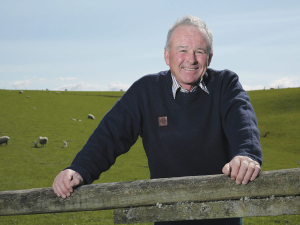As the anniversary of the 1984 Southland floods approaches, Environment Southland is reminding residents that the maintenance of and investment in flood infrastructure in the region is more crucial than ever.
This week marks the 40th anniversary of the floods, which saw thousands of people evacuated from their homes under a state of emergency in Invercargill, Otautau and Tuatapere, thousands of stock lost, and almost 1,000 buildings damaged.
Environment Southland says that as the region acknowledges the anniversary, it is timely to recall that the floods were the catalyst for the extensive flood protection construction and upgrades that have buffered the region from more severe flood impacts for several decade.
With flooding proving to be an ever-present risk, Environment Southland is responsible for maintaining and improving flood protection schemes that protect people, property and livelihoods.
Environment Southland chairman Nicol Horrell says the floods in September 2023 were another reminder of how important it was to maintain and invest in Southland’s flood protection network.
“Environment Southland has been working on Government co-funded climate resilience projects to upgrade some of the flood protection network, to help ensure towns in our region are more resilient to the challenges of a changing climate,” he says.
The Waihōpai River is currently being upgraded to meet the increase in extreme sea levels in the Kōreti New River Estuary, while the new Stead Street Pump Station also formed an integral part of Invercargill’s flood protection scheme to protect the area from inundation for the next 50 years.
Construction of a new stop bank along Ontario and Toronto Streets in Gore has been completed, and flood protection work in Wyndham and Mataura is nearing completion.
Horrell says these projects, and others including the development of a 30-year Infrastructure Strategy, will build greater resiliency in the face of climate change for communities and critical infrastructure.
However, further investment is needed now and for the future because parts of the flood protection network are more than 30 years old, and more frequent and intense weather events are putting it under pressure.
Flooding is one of the most common natural hazards in Southland and it is important to be prepared.
To minimise the impact of floods, Emergency Management Southland Simon Mapp group manager recommends people visit the cdsouthland.nz website.
“This website provides information on what to do before, during, and after a flood,” Mapp says.
Residents can also use Southland's Natural Hazards Portal on the Environment Southland website to determine the flood risk level in their area.
By examining the flood zones and using the information from the website, people can learn what steps they need to take to evacuate their homes in case of a flood, he concludes.



















